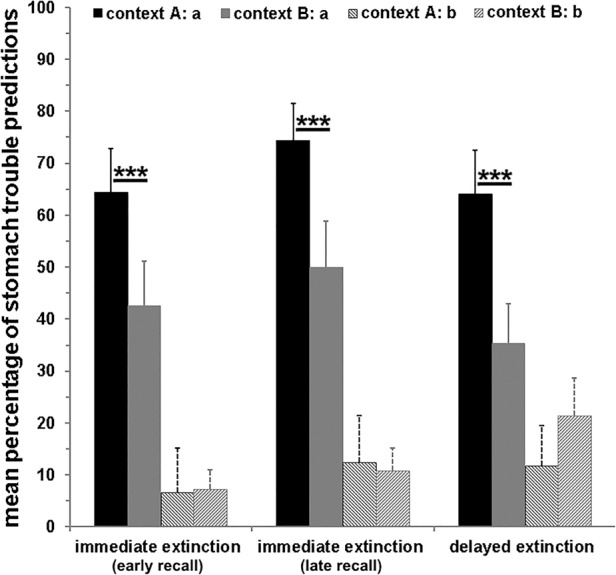Figure 3.

Mean (±SEM) percentage of stomach trouble predictions during recall in contexts A and B, presented separately for the three groups (immediate extinction [early recall]; immediate extinction [late recall]; delayed extinction) and stimuli a and b undergoing a context change during extinction. During acquisition, stimulus a was associated with stomach trouble, while stimulus b was not paired with stomach trouble. During extinction, both stimuli were no longer paired with stomach trouble. A renewal effect emerged indicated by higher stomach trouble predictions toward stimulus a in context A compared to context B. (***) P < 0.001. No group differences occurred for stimuli a and b indicating that stimuli undergoing a context change during extinction were not subject to the immediate extinction deficit.
